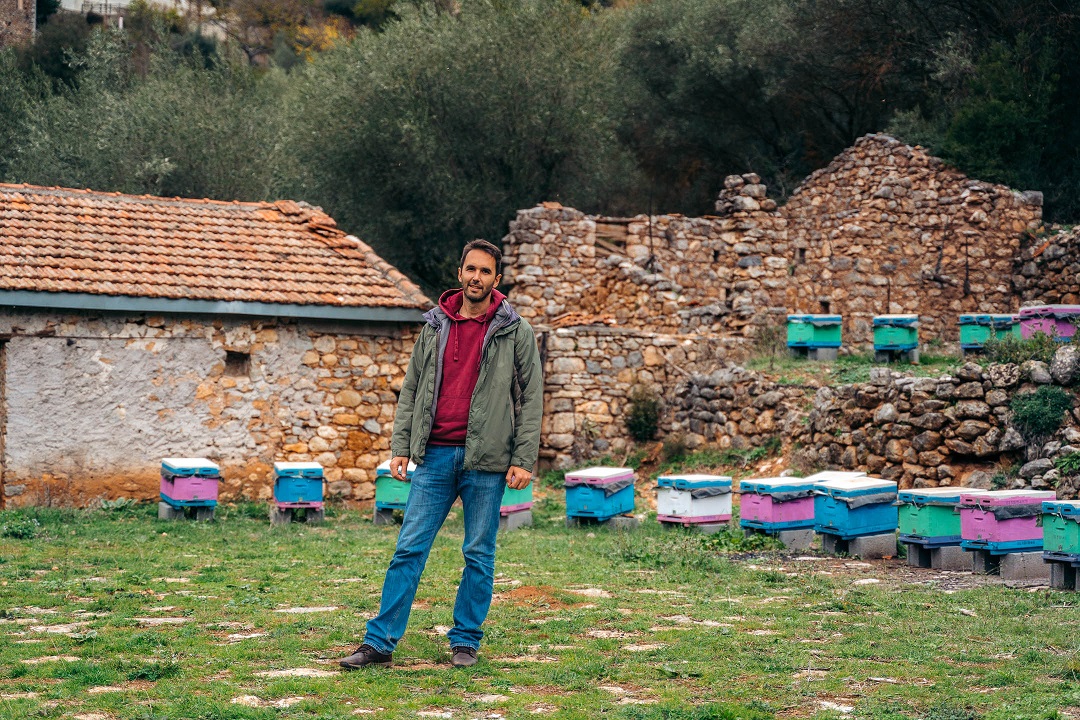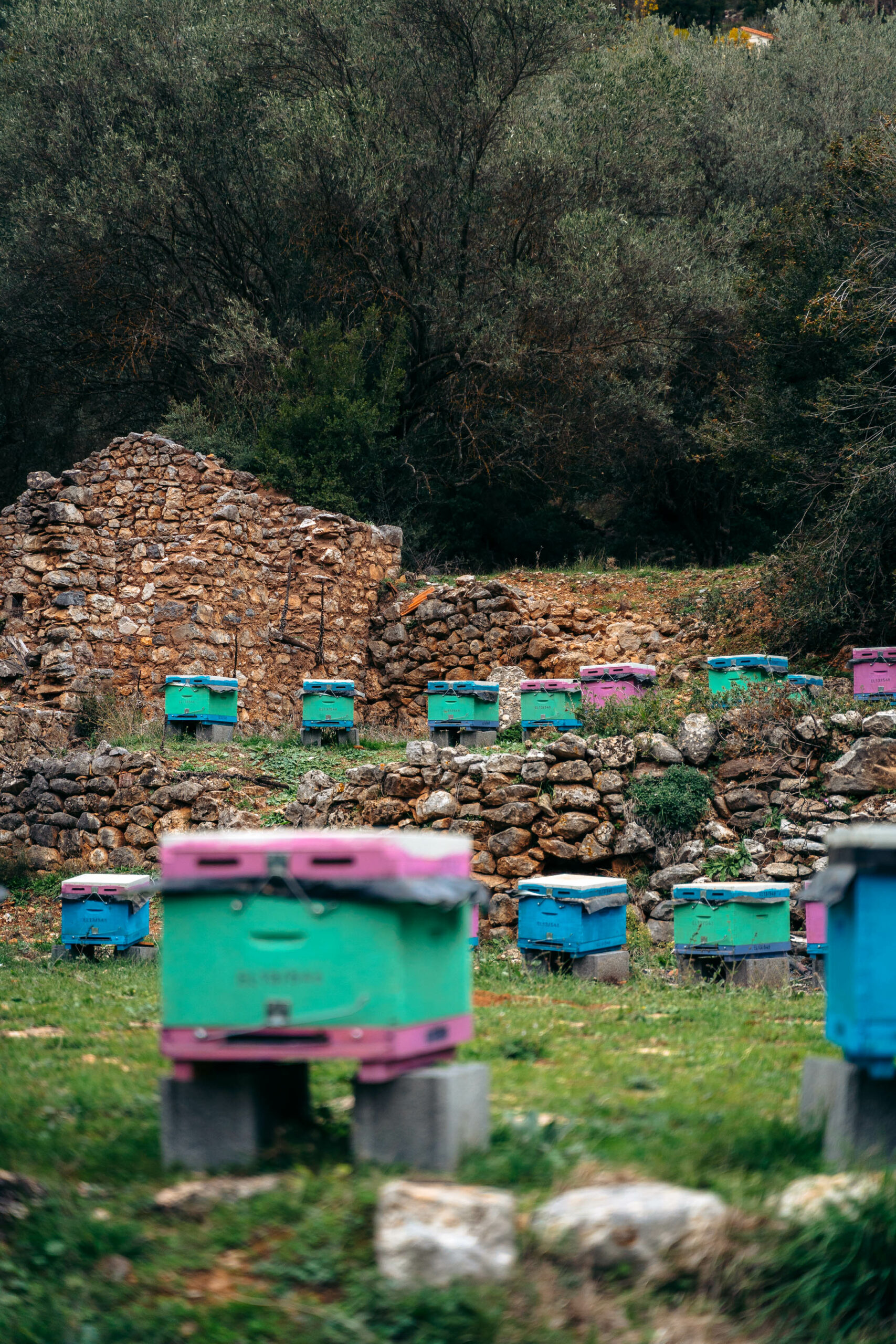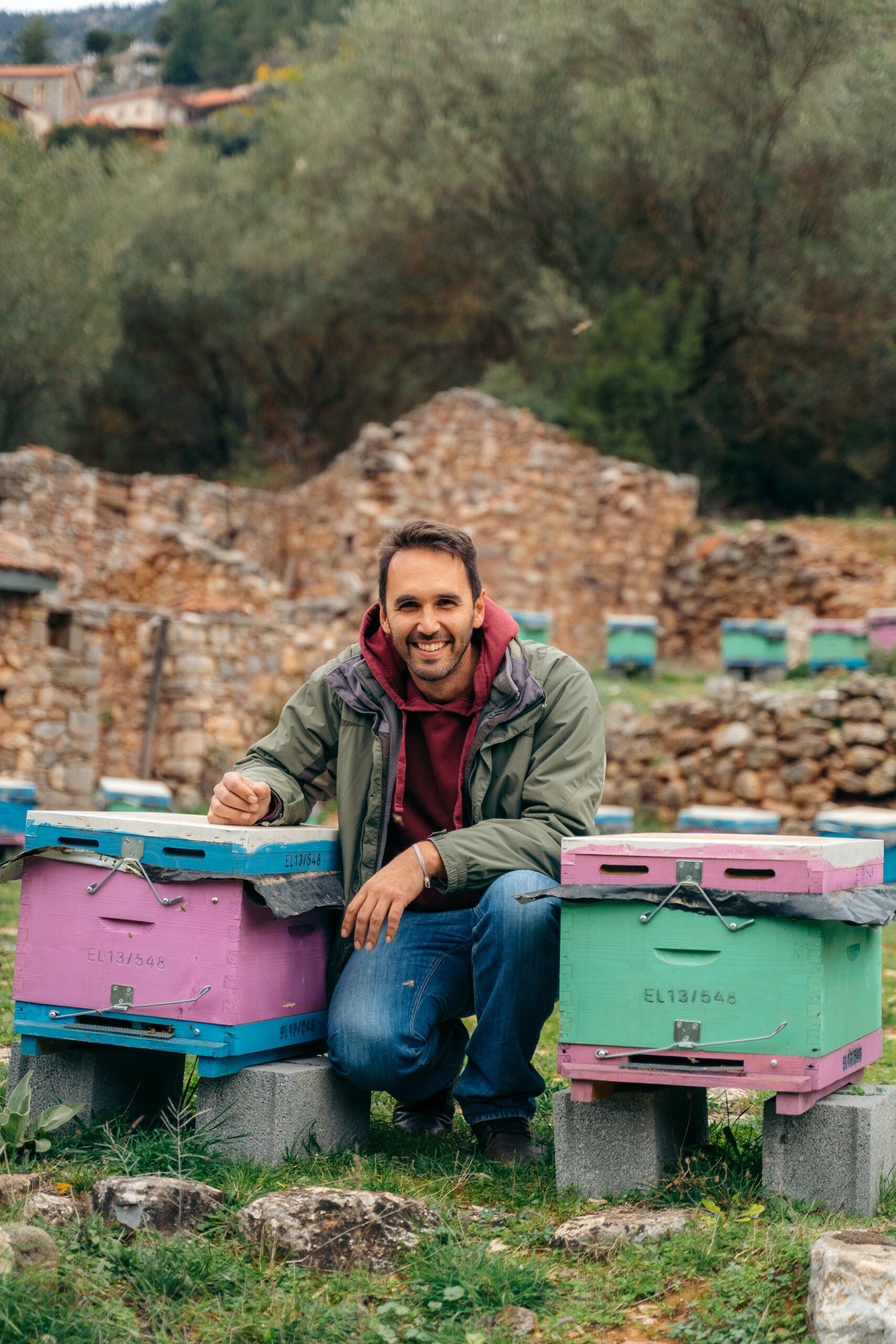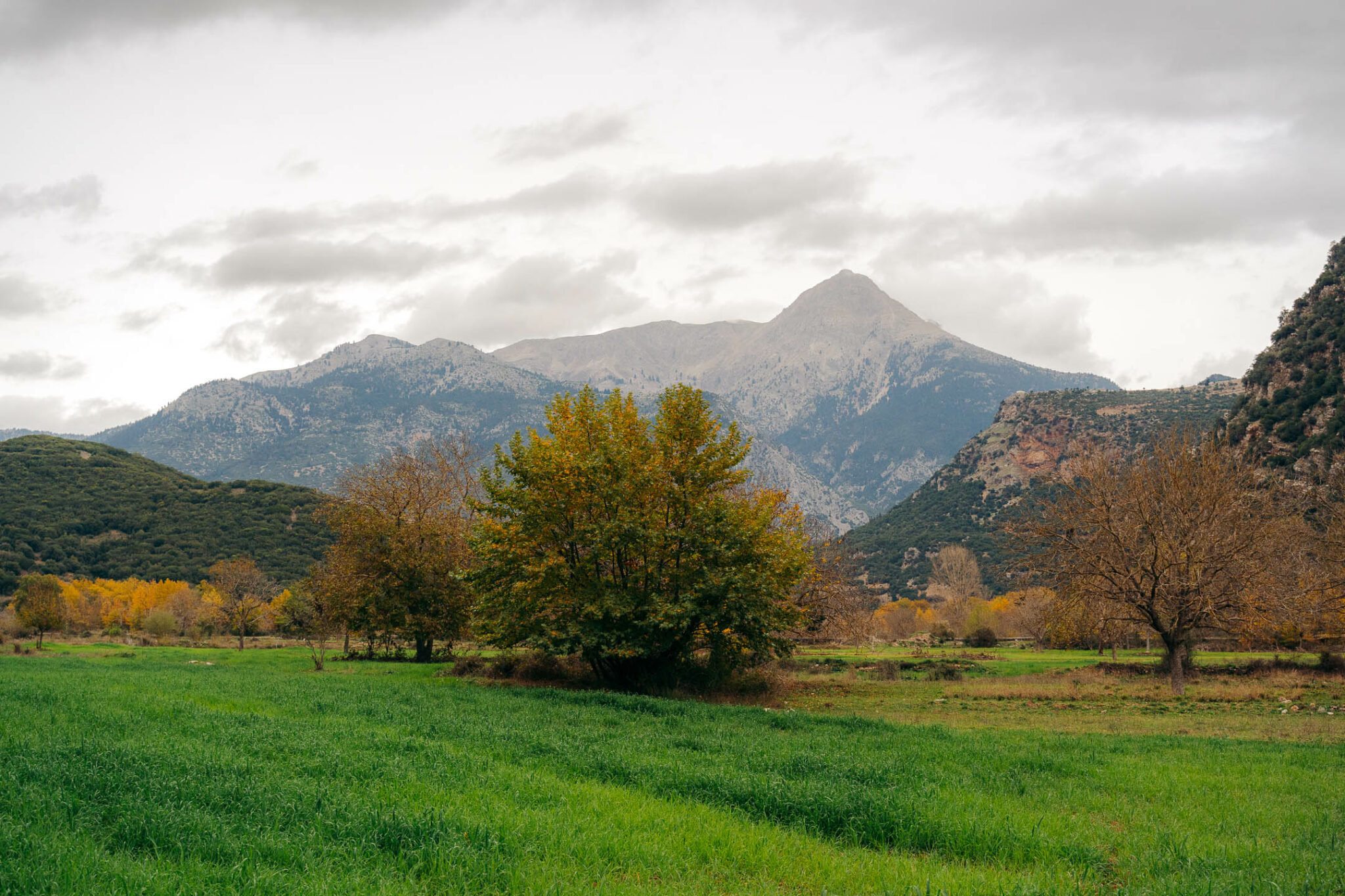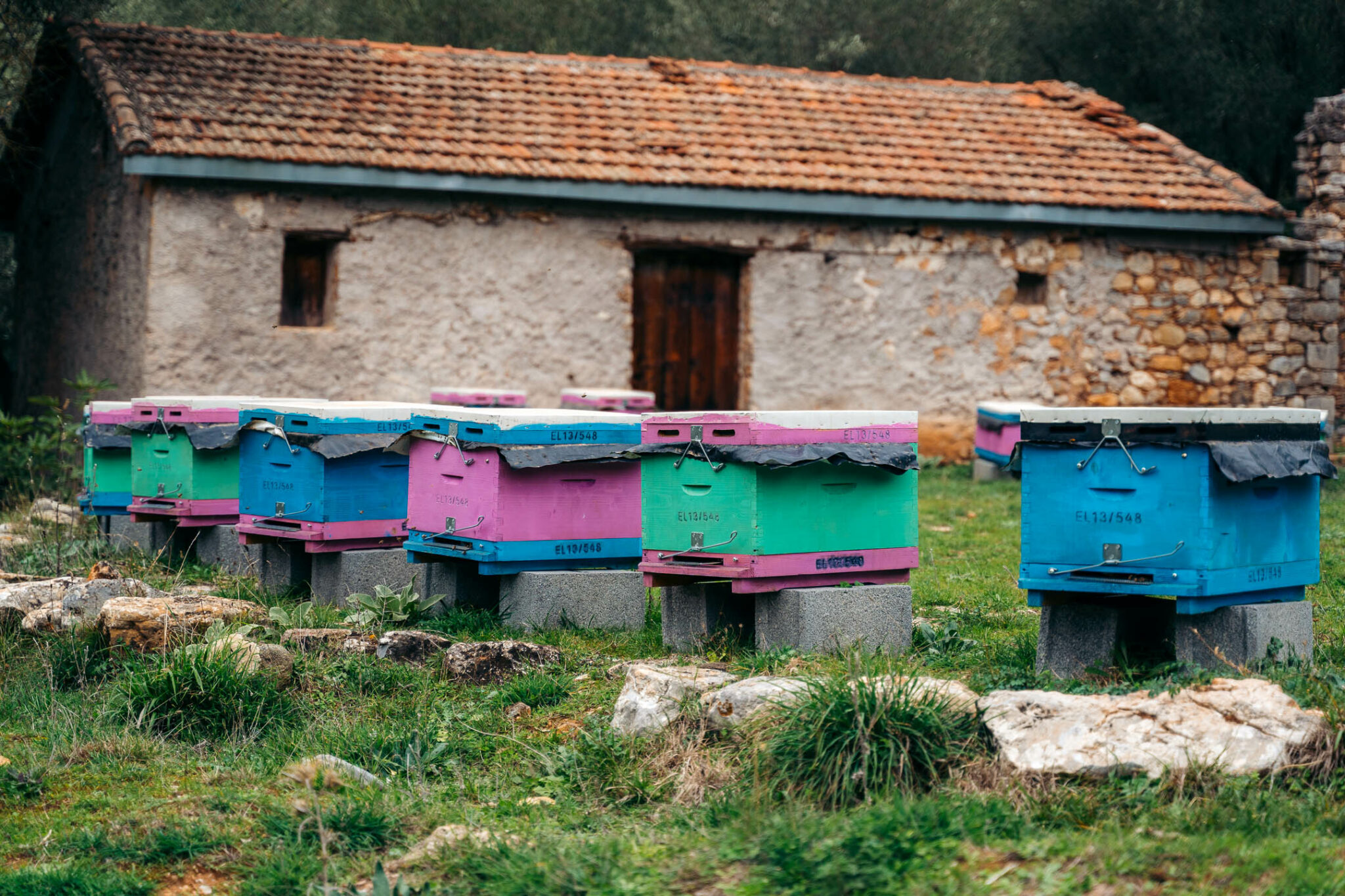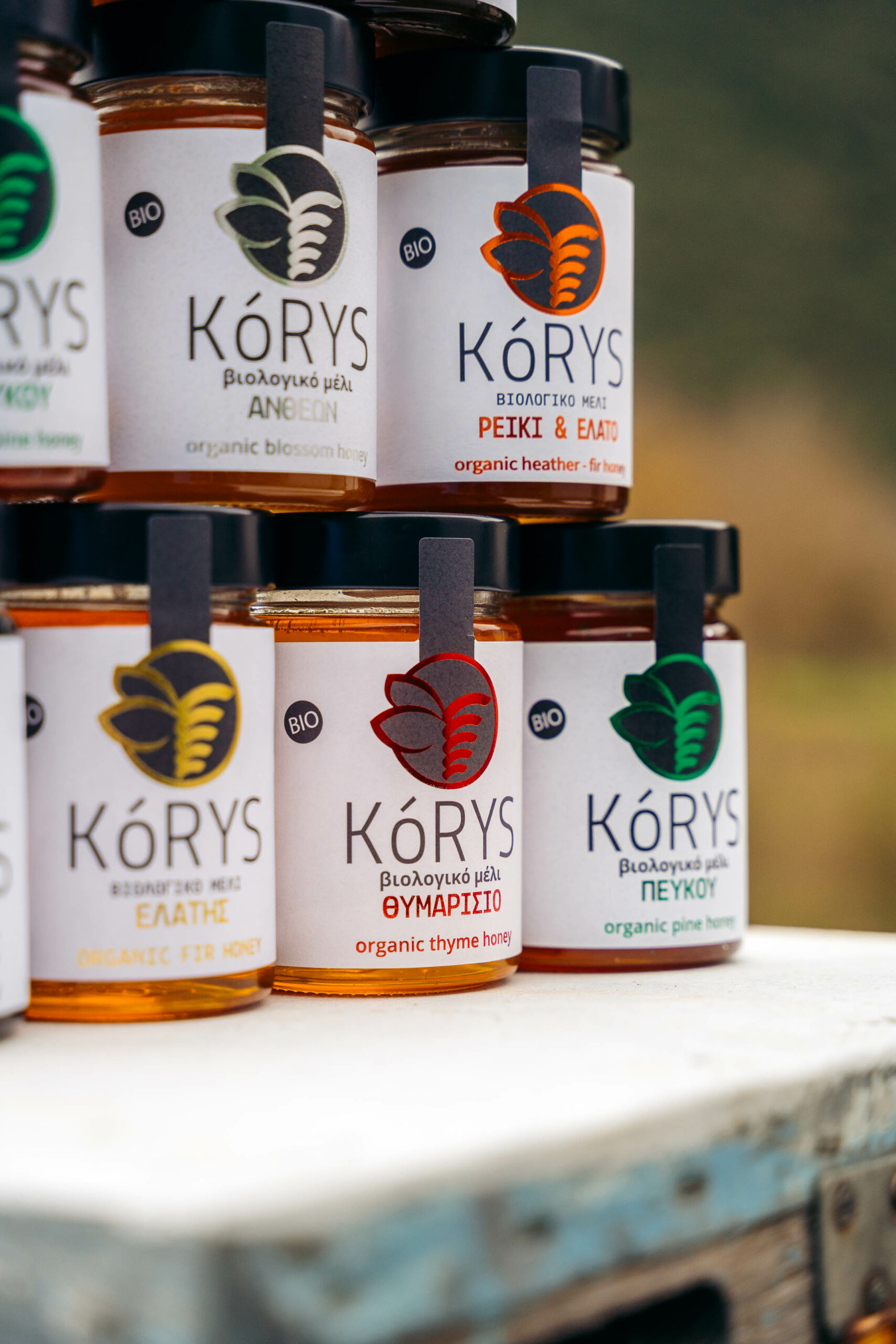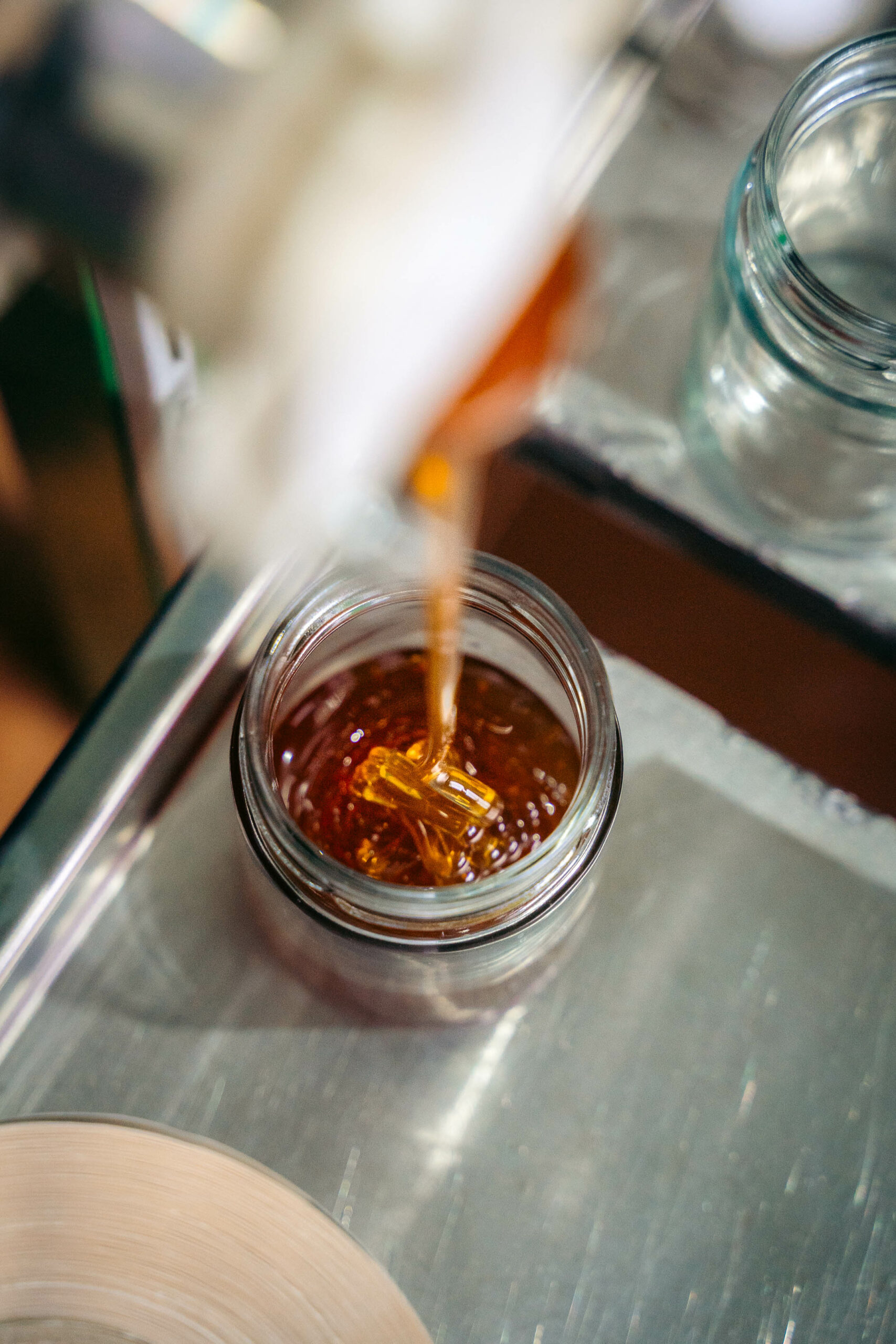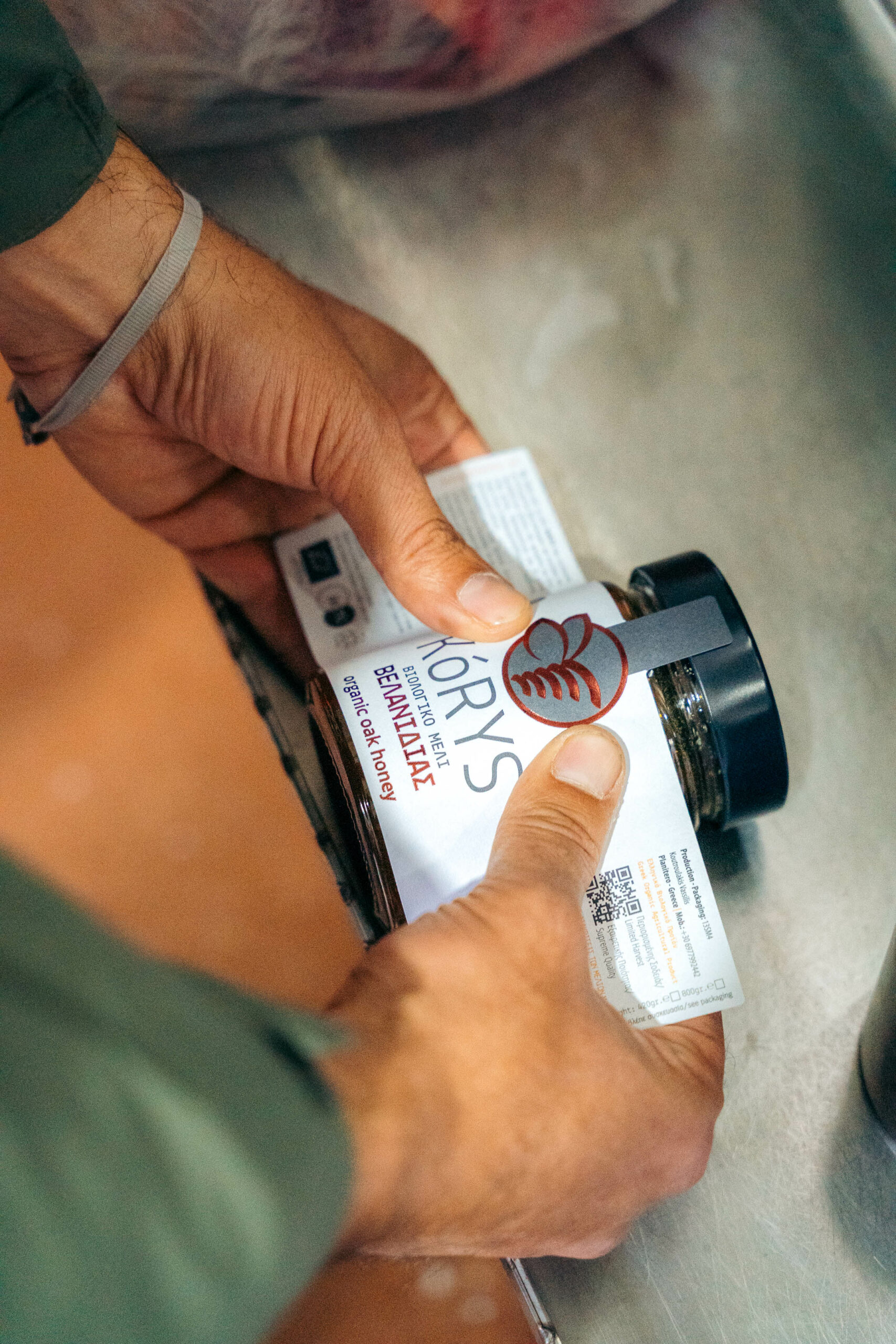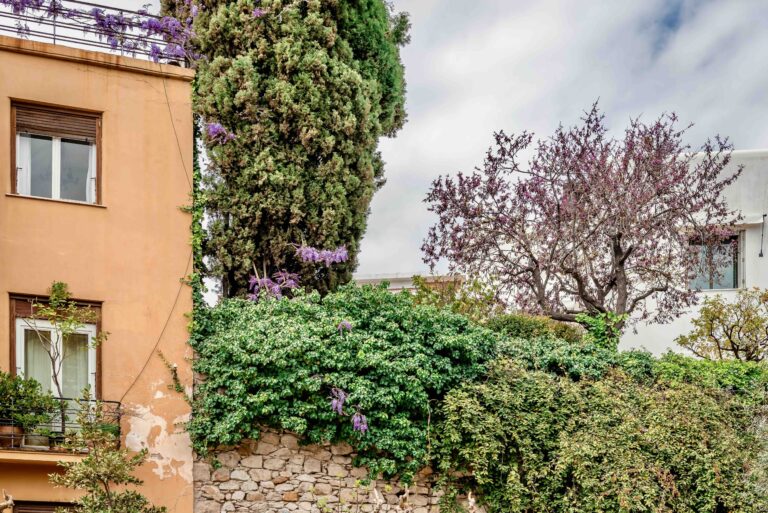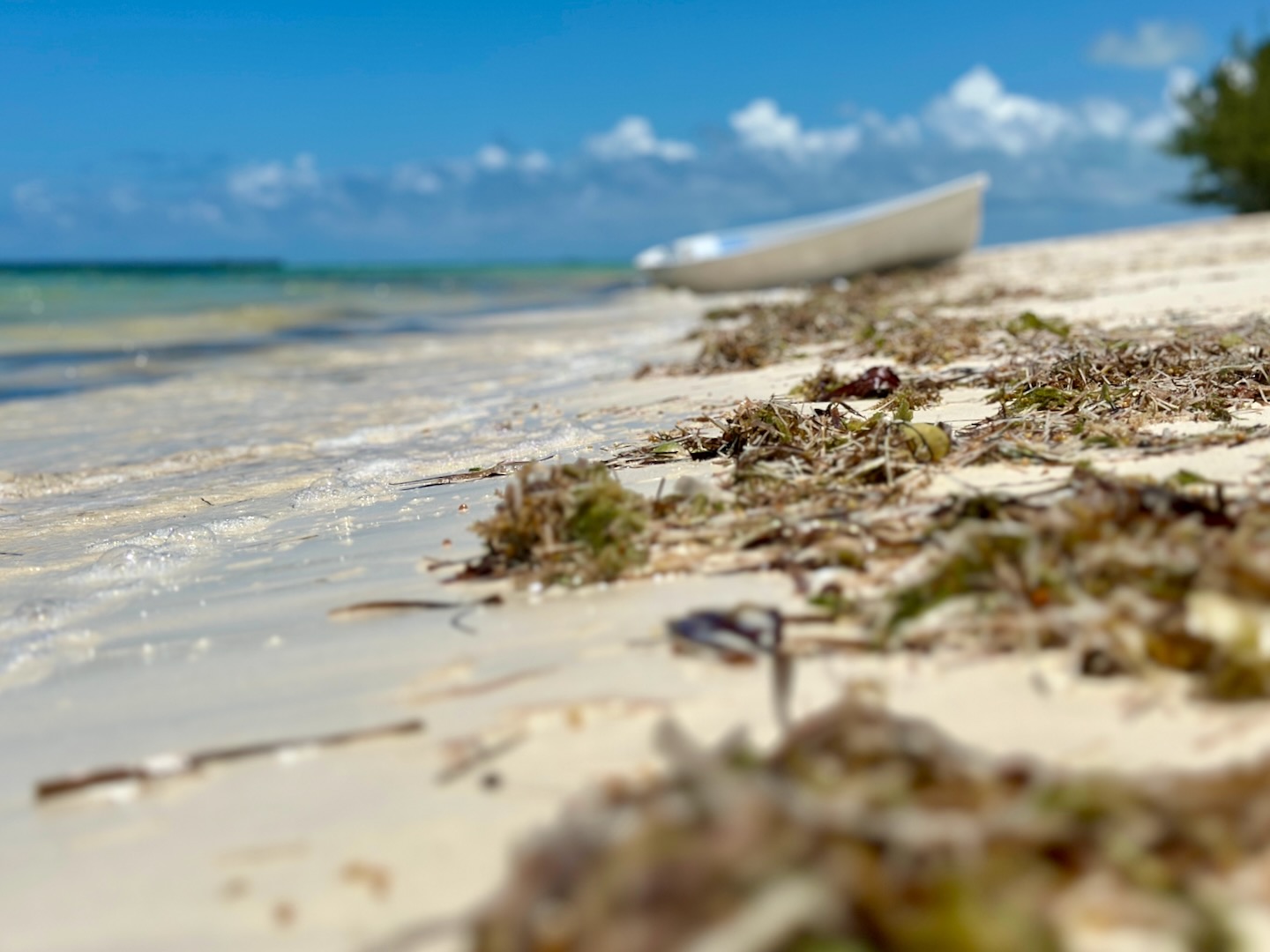He grew up in Athens and specifically in the neighbourhood of Ampelokipi. He loves to play basketball and never misses the opportunity to spend his summer holidays in his mother’s village, Planitero, Achaia.
“I still remember all those days of playing in the village streets until nightfall, when grandmother would look for me everywhere and grandfather would frown at me and not talk much as I walked home”. We met beekeeper Vassilis Koutroulakis, and we entered a great universe, the universe of the bee.
Longing to live in the village
In the distant 2001, he decides to leave Athens, wanting to lay the foundations to create his own family away from the big city and ensure quality of life for himself and his future family.
Before that, however, he attended the Technical School of Anavryta, where, in a spur-of-the-moment decision, he chose the Department of Beekeeping rather than Floriculture, a subject in which his family was engaged. “I came home and told my mother I was going into beekeeping. She looked at me in wonder. She told me off and things moved on!”
A family with love for bees
Completing school, things were a one-way street. What he had probably always wanted, to stay permanently in the village, was now going happen and in an ideal way. He may well have graduated from school, but he hadn’t yet become a beekeeper.
“It was the invaluable help of two people from the village that has made me a beekeeper in practice,” he tells us as we climb a dirt road to reach some hives he has placed near his grandfather’s old warehouse. There we learn how things evolved over the last 20 years of his life. Together with his wife Panagiota, who is a kindergarten teacher, they have two children, Georgia and Dimitris, and they all have an extraordinary love for bees.
The children’s love for bees
“These hives belong to my son, Dimitris” he says as we observe from a safe distance the colourful hives that produce Korys organic honey.
Dimitris is only nine years old, but he knows a lot about bees. “He wants to come to the hives all the time. He asks questions about everything, he knows already how to perform many beekeeping tasks and likes to explain to others about the great society that bees develop”. Georgia, the eldest of the two children in the family, also spends a lot of time in the packaging department, when classes and schedule allow.
Korys organic honey
Korys organic honey has been awarded with many prizes. Vassilis does not rest for a minute. He is always looking for the best place where he can transport his bees, away from intensive cultivation. He travels across the Peloponnese, climbs up to Macedonia and Thrace. He mentions Evia and the devastating fires of last summer and his expression shifts. “We lost our forest. We heard about the fire, but there was not much we could do. We couldn’t help people save themselves and their homes. It was devastating”.
In the workshop
Leaving Planitero behind, we head towards the village of Klitoria. Vassilis leads us to his modern beekeeping workshop. A sign reminds us of the name. Korys. He points to the Mount Helmos, a peak that stands out. “That peak is called Korys, and that’s where I borrowed the name”. Korys is also the name of the highest point of a helmet.
Organic honey from all over Greece
Dozens of boxes of honey, stainless steel tanks, machinery, hives and frames. A production unit in full development. “This is where the honey finally arrives from the 600 hives in total we have placed in various locations. Depending on its type, it is placed in the appropriate tank and then depending on the orders it is packed. The types of honey that can be found here are fir, oak, forest, chestnut, thyme, carob and mountain flower honey. A significant percentage of this honey will be sold on the Greek market, while another significant percentage will be exported to England, Germany and America.



